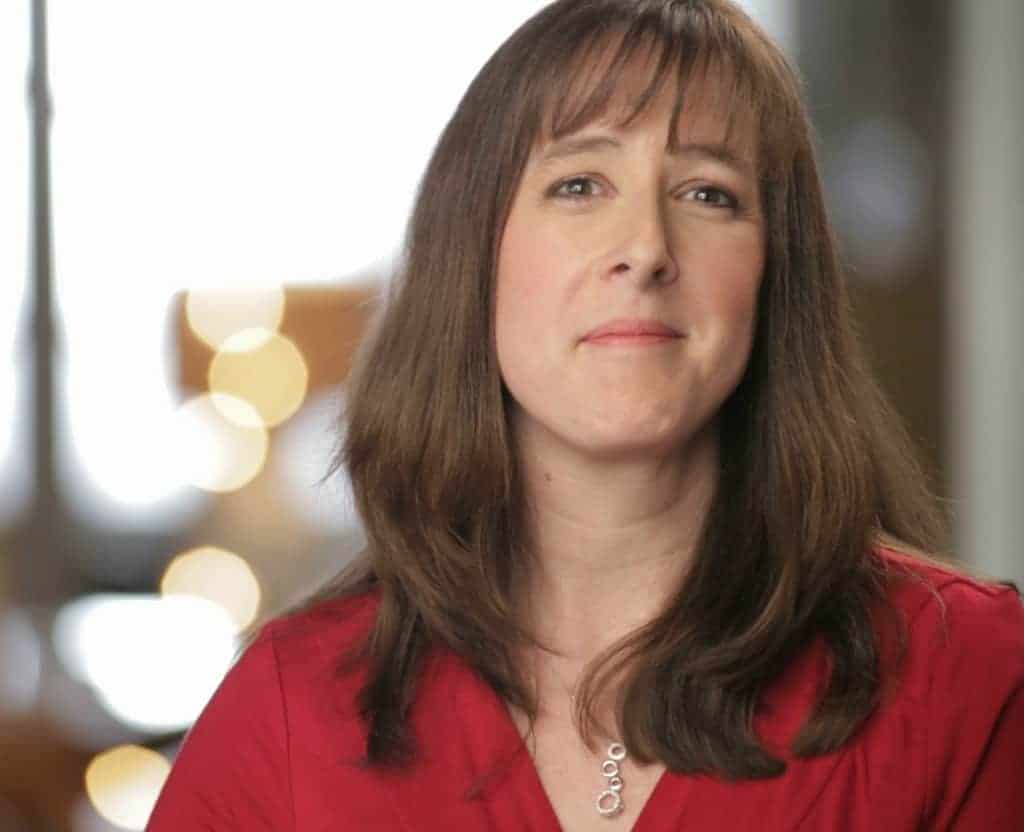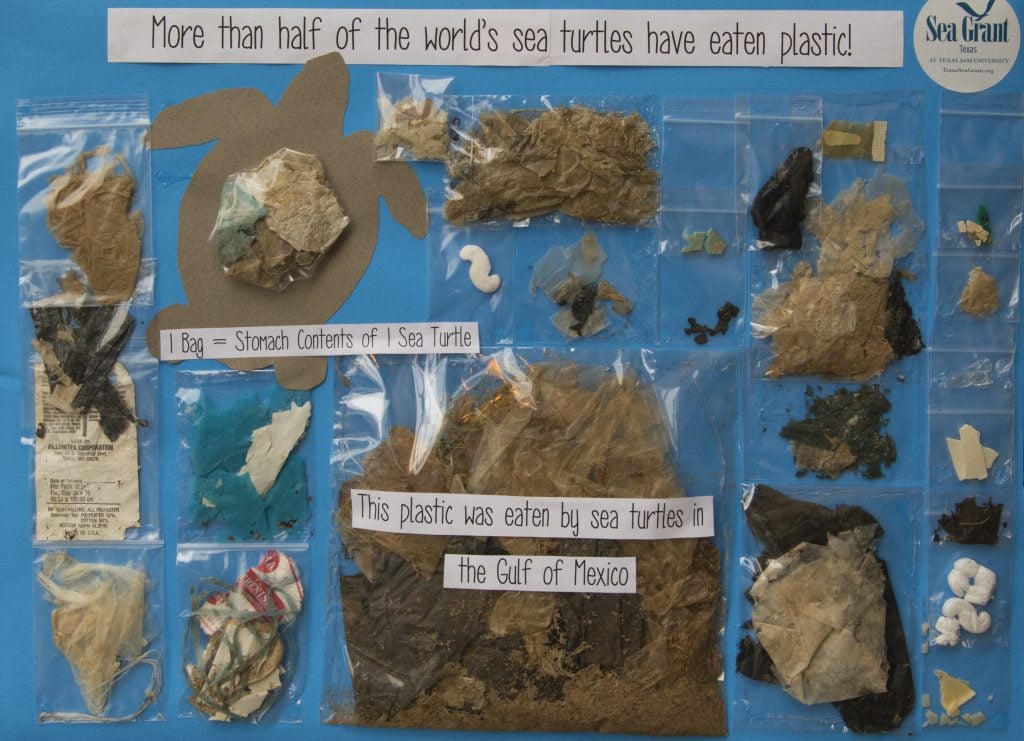This post about how to reduce plastic usage has been sponsored by Footprint. All opinions are my own.
Whether it’s part of your running shoe or that disposable straw you throw in the trashcan, plastic is a huge part of today’s society. While it serves a useful purpose in some areas, single-use plastics are one of the biggest problems with regards to our environment. Plastic waste is harming the planet in countless ways. Thankfully, it is relatively easy to reduce plastic usage and minimize the amount that eventually makes it into our oceans and waterways. In honor of World Turtle Day (May 23rd) and World Oceans Day (June 8), choose alternatives to single-use plastics. From reusable shopping bags to Footprint paper straws, make sustainable choices this month to reduce your plastic use.

Table of Contents
The Plastic Pollution Problem
Plastic waste is harming the environment in many ways, from contributing to greenhouse gas emissions to destroying life in our oceans. According to Wikipedia, about 380 million tons of plastic is produced worldwide each year. That is a truly staggering number. Inevitably, a large portion of this plastic waste ends up as pollution in our environment.
✯Don’t want to miss the next post?✯ Follow Turning the Clock Back on Facebook | Twitter | Pinterest Or join the private Facebook group for simple tips on going green!
The plastic pollution problem is two-fold. First, animals (especially marine animals) can be harmed by coming into contact with the actual physical plastic waste. Not too long ago, marine biologist Christine Figgener pulled a disposable plastic straw out of a sea turtle’s nose. You can watch this heartbreaking video below if you want to truly see how the plastic pollution problem is affecting our marine environment.
Easy Tips for Reducing Plastic Waste
- 15 Creative Ways to Reuse Plastic Milk Jugs
- Stop Drinking Bottled Water to Save Money and Go Green!
- Ways to Reduce Your Garbage Output And Why You Should Try

How to Reduce Plastic Usage
Maybe you think your plastic straw usage isn’t a big deal. Or, perhaps you figure that buying bottled water is a drop in the bucket when it comes to plastic pollution. However, if every person made a concerted effort to reduce plastic waste, we could make a big dent in the disposable plastic contaminating our environment. Reducing plastic usage doesn’t have to be difficult. Here are a few ideas to reduce plastic waste in your day to day life:
- Choose reusable shopping bags. One of the easiest ways to reduce the use of plastic bags is to keep a reusable one in your car. That way, even if you are only running in to the store to buy one thing, you have an alternative to single use plastic bags.
- Bring your own bottle. Invest in a reusable water bottle. With this one step, you can save money while reducing plastic waste.
- Buy from bulk bins as often as possible. Many stores that offer bulk bins will allow you to bring your own reusable containers, rather than taking a disposable plastic bag.
- Carry your own containers, utensils, and travel mug. Bring a travel mug to your local coffee shop. Tuck a set of bamboo utensils in your purse. These are easy ways to avoid using plastic while out and about.
- Avoid single-serving sizes. Want to know how to reduce your plastic usage? Look no further than your grocery shopping habits. Single serving bags of chips and pre-cut fruit contribute greatly to the plastic pollution problem.
- Compost and recycle. Reduce your trash output by composting, recycling, and reusing everyday items. As a result, you will use fewer trash bags every week.
- Use paper straws. Skip the plastic straw in your next soda or glass of water. Paper straws are a great alternative to reduce the amount of plastic that can eventually end up in the ocean.

Choose Paper Straws Instead of Plastic!
While we wait for the government, retailers and manufacturers to start tackling the plastic pollution crisis, consumers can take matters into their own hands thanks to Footprint paper straws. Footprint straws are tough but compostable. That means, they are sturdy enough to hold up to your favorite beverage over a few days of use, but will compost completely within 90 days. They are also PFAS-free, FDA-approved, sustainably-sourced and made right here in the United States.
Want a smaller plastic footprint? Replace plastic straws with Footprint bio-degradable, compostable and marine-safe paper alternative. It’s an easy way to eliminate single-use plastics in your day to day life.
Over the next few weeks, turtle and ocean awareness will be popular topics. Do your part to eliminate single-use plastics. If you must use straws, cups and lids, make them compostable and ocean-friendly like Footprint.

Bring Footprint Straws to Your Community
You can also help your local community reduce plastic waste with Footprint’s upcoming consumer microsite for purchasing paper straws. On June 8, anyone — not just businesses —can use their site to purchase Footprint paper straws. In addition, you can send a free starter/tester package of straws to any business or organization that you’d like to see switch to paper straws.
Want your favorite coffee shop to carry paper straws? YOU can make that happen! There are a number of companies already making the switch to paper straws, including Wegmans, Disney Parks, Universal Studios, and many others. Bringing paper straws to businesses in your own town is a great way to build sustainable cities!
Don’t want to wait til the site is ready to buy paper straws? Send them an email at [email protected].

More About Footprint
Footprint was founded by former Intel engineers Troy Swope and Yoke Chung. In 2019, they won the NextGen Cup Challenge for their fiber-based alternative manufacturing process. To date, they have helped eliminate over 50 million pounds of plastic from the environment. The company is based in Gilbert, Arizona and you can learn more about them at www.footprintus.com.
While plastic is a vital part of our lives, plastic WASTE is an issue that needs to be addressed quickly. Choose alternatives to single-use plastic when possible. If you do use plastic, recycle it or find another way to use it to keep it out of the environment.

Diane is a professional blogger and nationally certified pharmacy technician at Good Pill Pharmacy. She earned her BS in Microbiology at the University of New Hampshire and has worked in cancer research, academics, and biotechnology. Concern over the growing incidence of human disease and the birth of her children led her to begin living a more natural life. She quickly realized that the information she was learning along the way could be beneficial to many others and started blogging and freelance writing to share this knowledge with others. Learn more about her HERE.

